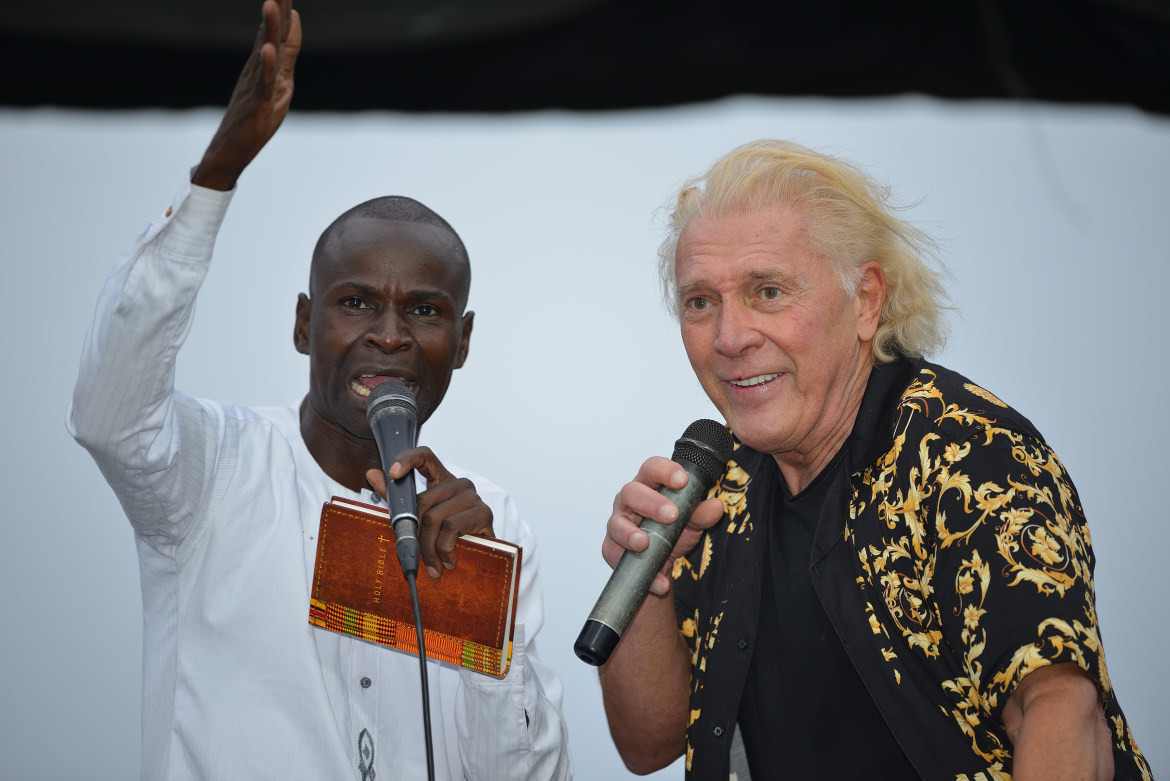
Today was the first day of a crusade in Rhino Camp, a refugee camp north of Arua. Despite the heavy rain, several hundred refugees showed up. At the end, there was a call for the surrender of life. Many young people gave their lives to Jesus that evening and want to follow him.
The Canadian evangelist Len Lindstrom had come to Uganda at his own expense to support our work.
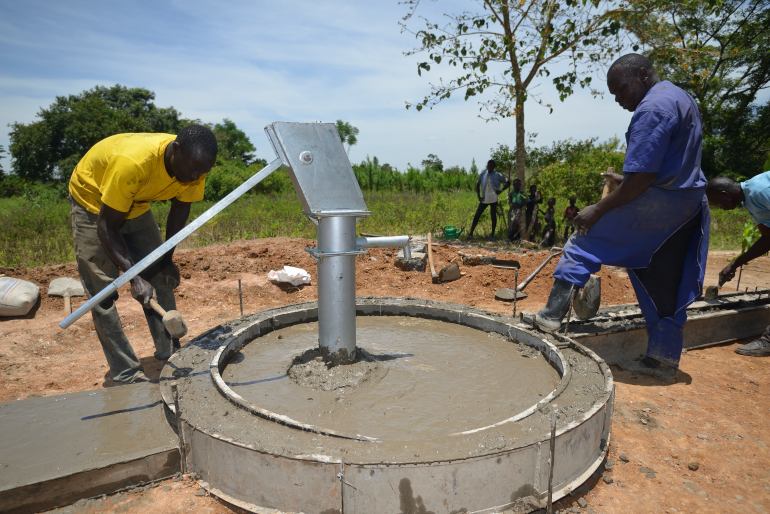
Another step towards clean water: three days ago we successfully drilled here, today we concreted the bed of the hand pump and installed the hand pump. Now the concrete just has to dry. To prevent it from cracking in the heat, it was covered with banana leaves.
During the concrete work, we organised a WASH seminar in the village. The topics were water and hygiene. Flory Lechabo, Medical Officer, led the seminar.
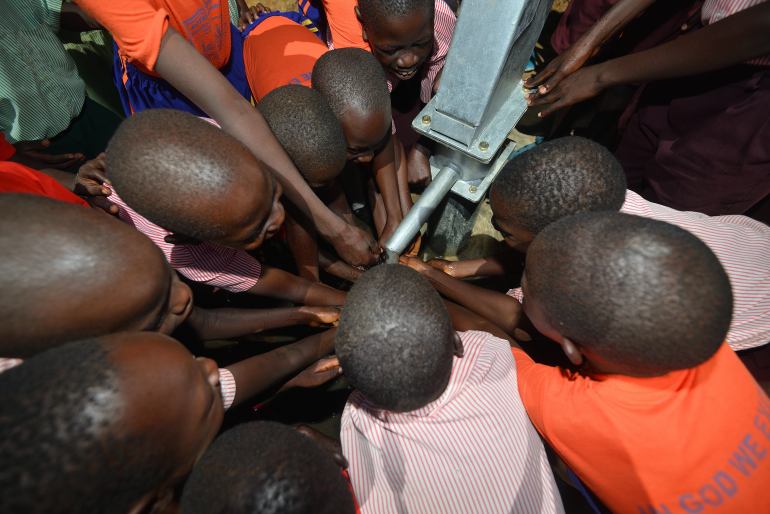
Today is a big day for the pupils of Nursery & Primary in Adyangowe, Uganda:
The hand pump is now installed and handed over to the school. 5,100 litres of water per hour are now available. The long, dangerous and tiring walks to the water point are now history. Now it is less than 100 metres walk between the school and the hand pump. It is located on the school grounds.
In April 2021, we were on site in Adyangowe to assess the situation. The possibility of providing water by means of well construction and hand pump could be considered.
The children of the kindergarten and school in Adyangowe walked 3.2km 3-4 times a day to fetch water from a heavily polluted waterhole that resembled a pond.
Many of the children got tired on the way and were therefore late or did not come to class at all. Furthermore, at least 50 children were unable to attend primary school and kindergarten every week due to water-related diseases such as diarrhoea, bilharzia and cholera.
The war between the Lord's Resistance Army (LRA) and Ugandan government troops, which has lasted for over two decades, destroyed basic infrastructure and led to dependence on emergency aid. Many villages still do not have access to clean water.
Moses, the headmaster of the school, the children and the inhabitants of the surrounding villages are overjoyed that they now have a well on the school's property.
THANK YOU to everyone who made this project possible with your support. You are saving lives & giving new hope for a better future for Adyangowe!
Interview with Moses, the director of the school
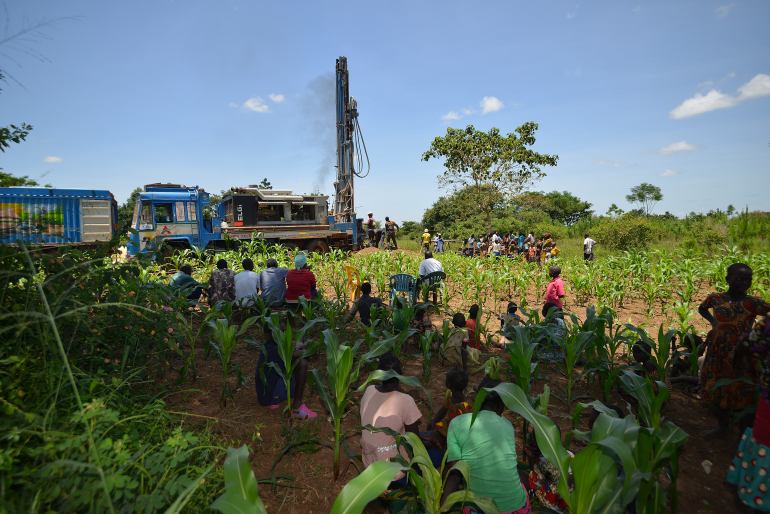
In April 2021, the Okwalongwen community in Uganda approached us and asked if we could build them a well with a hand pump.
Thanks to the financial support of our donors, the time has now come. It can start. We started drilling at 9.45 am and finished at 6.30 pm. Between 2,600 and 2,700 litres of water per hour are available. More than enough for a hand pump.
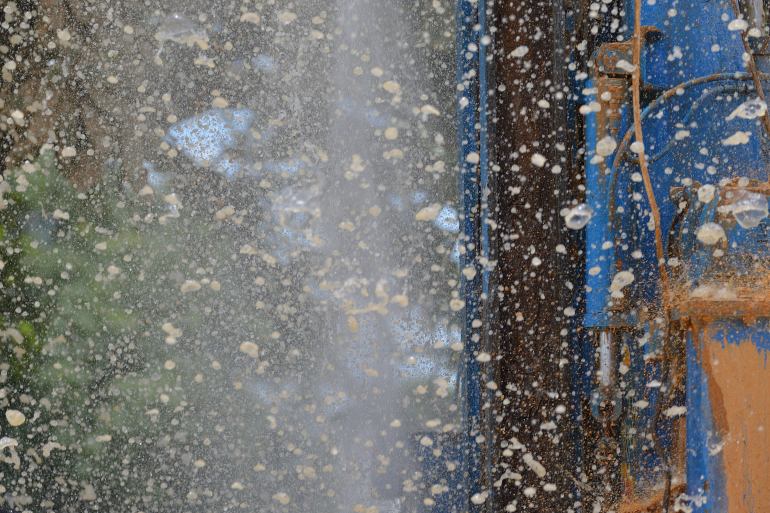
Yesterday we changed the order of the filter pipes, today it showed that the work was worth it. It took us 1.5 days, but now about 5,100 litres of water are available for the pupils of the Nursery and Primary School.
The people living around the school will also benefit. The long walks to fetch water will soon be history: on Monday, the hand pump will be inaugurated.
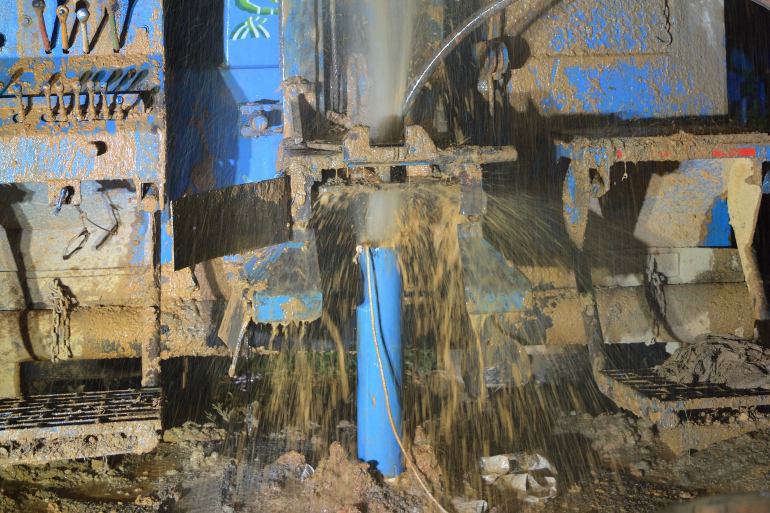
Yesterday we started the drilling work at the Nursery and Primary School in Adyangowe. In the evening everything was ready. But then came the surprise: hardly any water came out of the borehole - even though there was a lot of water during the drilling work.
After some consideration, we came to the conclusion that the filter pipes were not optimally arranged. So we took all the pipes and the gravel out of the borehole again. Then the pipes were reinstalled in a different order.